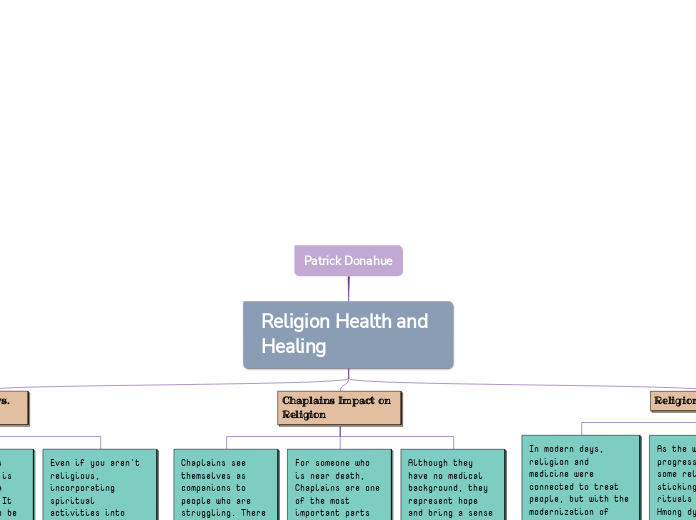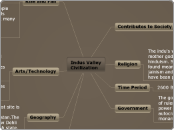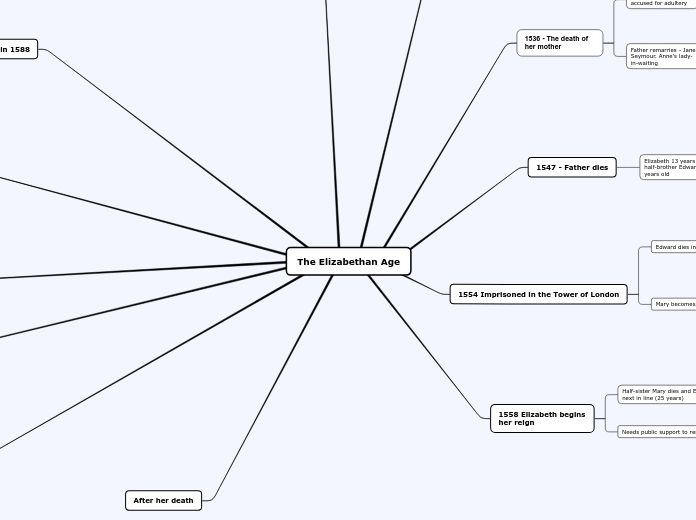Patrick Donahue
Type in the name of the multiple-perspectives text.
Example: Bridge to Terabithia by Katherine Paterson
Religion Health and Healing
Identify an important issue from the text that is being presented from different angles. Type it in.
Example: Jesse's drawing talent.
Religion vs. Medicine
Whose character does the third point of view belong to?
Type in his/her name.
Example: Mr. Aarons, Jesse's father.
In my opinion, if people wanted to get the best results for their patients, they need to look back at where we came from.
We are constantly trying to move forward, where sometimes the best plan of action is to take a step back and reevaluate.
What kind of narration introduces the viewpoint?
Choose an answer:
First person point of view - using the personal pronouns 'I' or 'we'Second person point of view - using the personal pronoun 'you'Third person point of view - using the third-person pronouns 'he', 'she' and 'they'Omniscient point of view - an all-seeing observer tells the story
As the world progresses further, some religions are sticking with old rituals such as the Hmong dynasty who uses no modern medicine and other religions are practically following modern medicine.
In modern days, religion and medicine were connected to treat people, but with the modernization of science, they feel less and less connected.
What does the character think, say or do that suggests their perspective on the issue?
Type in a quote and try to maintain the citation format.
Example: 'He would like to show his drawings to his dad, but he didn't dare. (...) He'd thought his dad would be pleased. He wasn't. What are they teaching in that damn school? he had asked.' (Paterson, 2.8)
Chaplains Impact on Religion
Decide on the second point of view
Name the character (it can either be the main character or one of the supporting characters) whose point of view you are presenting.
Example: Miss Edmunds, Jesse's music teacher.
Although they have no medical background, they represent hope and bring a sense of comfortability to people who need it.
For someone who is near death, Chaplains are one of the most important parts for the end of life process.
Chaplains see themselves as companions to people who are struggling. There is a relationship between the two.
Type in a quote that points out the character's position about the issue.
Try to follow a citation format: author's name, chapter, and page.
Example: 'She said he was unusually talented, and she hoped he wouldn't let anything discourage him.' (Paterson, 2. 8)
Spirituality vs. Religion
Decide on the first point of view you are going to present.
Type in the name of the character (it can either be the main character or one of the supporting characters) whose point of view belongs to.
Example: Jesse Oliver Aarons, Jr., the main character of the novel, a fifth-grader living in a rural Southern area.
Even if you aren't religious, incorporating spiritual activities into your everyday life can positively benefit you and the people around you.
Spirituality is something that is engraved into a person's soul. It doesn't have to be a religious something that they believe in, but a higher power than themselves.
Spirituality and religion are two separate things that have similarities as well.
Type in a relevant quote that highlights the character's point of view towards
Religion Health and Healing.
Try following a citation format: author's name, chapter, and page.
Example: 'Jesse drew the way some people drank whiskey. (...) Lord, he loved to draw. (...) When he was in first grade, he told his father that he wanted to be an artist when he grew up.' (Paterson, 2. 7)









